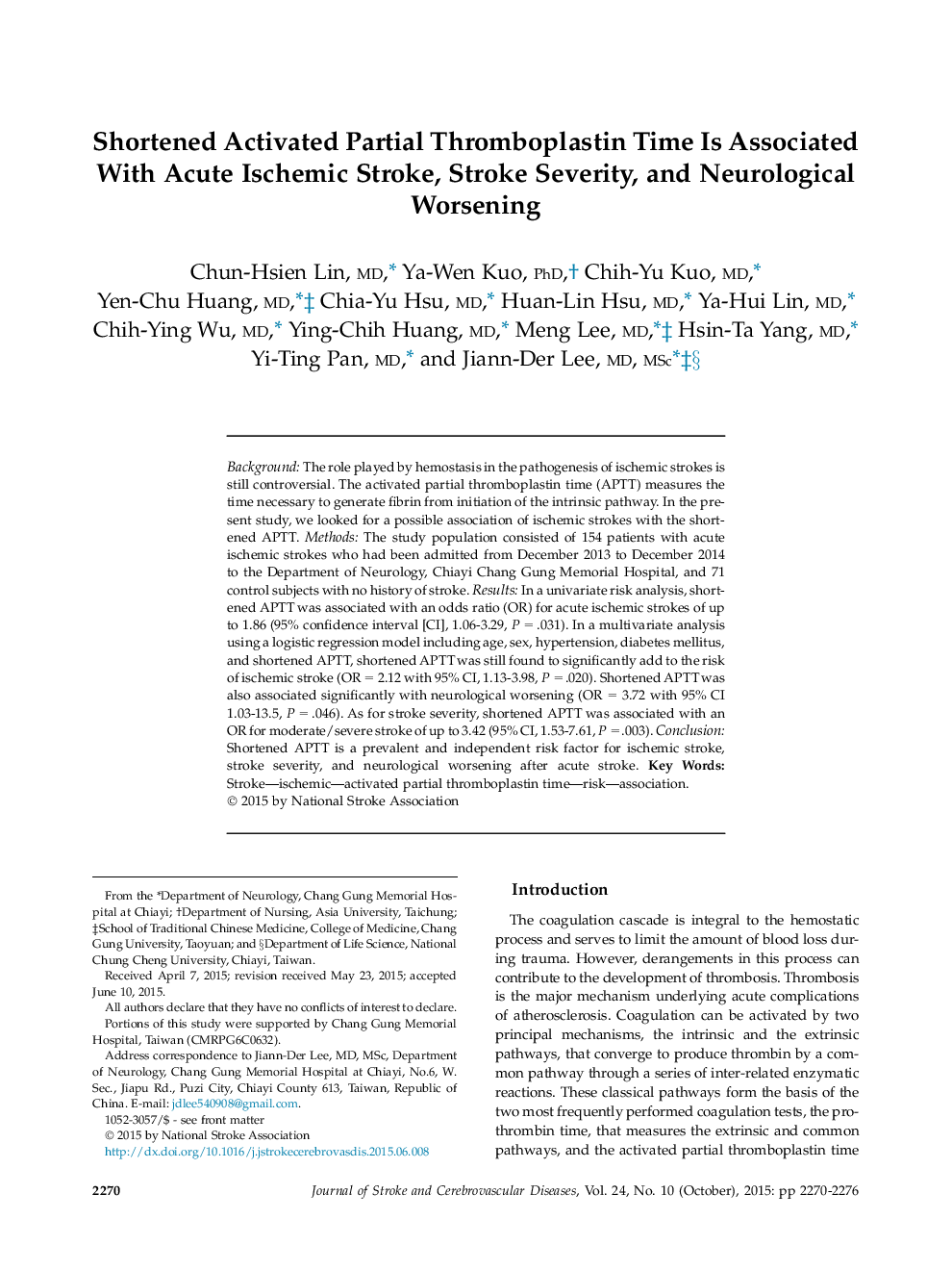| Article ID | Journal | Published Year | Pages | File Type |
|---|---|---|---|---|
| 2709967 | Journal of Stroke and Cerebrovascular Diseases | 2015 | 7 Pages |
BackgroundThe role played by hemostasis in the pathogenesis of ischemic strokes is still controversial. The activated partial thromboplastin time (APTT) measures the time necessary to generate fibrin from initiation of the intrinsic pathway. In the present study, we looked for a possible association of ischemic strokes with the shortened APTT.MethodsThe study population consisted of 154 patients with acute ischemic strokes who had been admitted from December 2013 to December 2014 to the Department of Neurology, Chiayi Chang Gung Memorial Hospital, and 71 control subjects with no history of stroke.ResultsIn a univariate risk analysis, shortened APTT was associated with an odds ratio (OR) for acute ischemic strokes of up to 1.86 (95% confidence interval [CI], 1.06-3.29, P = .031). In a multivariate analysis using a logistic regression model including age, sex, hypertension, diabetes mellitus, and shortened APTT, shortened APTT was still found to significantly add to the risk of ischemic stroke (OR = 2.12 with 95% CI, 1.13-3.98, P = .020). Shortened APTT was also associated significantly with neurological worsening (OR = 3.72 with 95% CI 1.03-13.5, P = .046). As for stroke severity, shortened APTT was associated with an OR for moderate/severe stroke of up to 3.42 (95% CI, 1.53-7.61, P = .003).ConclusionShortened APTT is a prevalent and independent risk factor for ischemic stroke, stroke severity, and neurological worsening after acute stroke.
